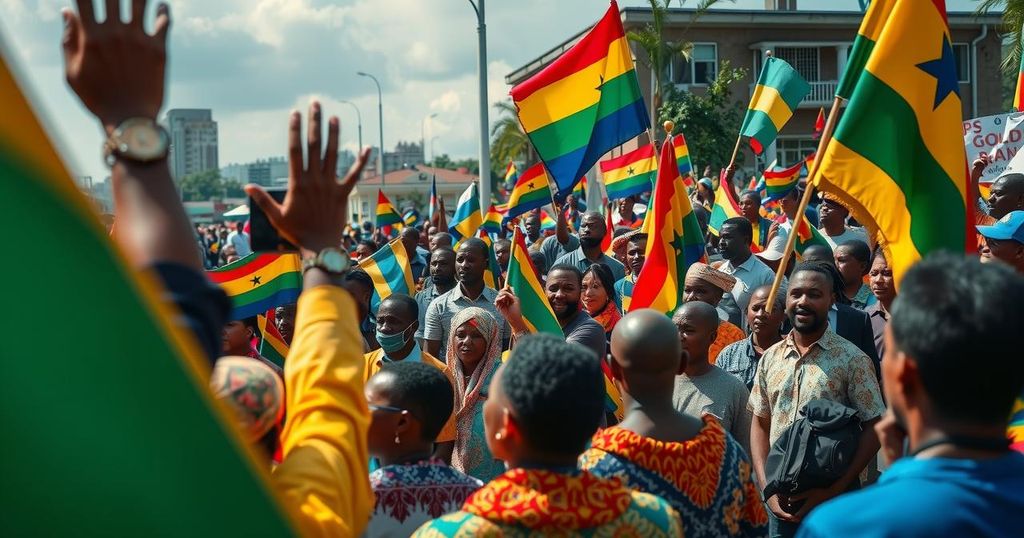The Ghanaian elections are complicated by candidates’ anti-LGBTQ+ promises, threatening the rights of LGBTQ+ individuals through a proposed bill that criminalizes their existence. The bill awaits pending Supreme Court decisions, creating a precarious environment for the LGBTQ+ community amidst prevalent homophobia and looming international repercussions.
In Ghana, the upcoming general elections have heightened tensions surrounding LGBTQ+ rights, as leading presidential candidates leverage anti-LGBTQ+ sentiments to gain support. The contentious bill, which proposes severe penalties, including imprisonment for LGBTQ+ individuals and those who do not report them, awaits the attention of the incoming president. Mahamudu Bawumia, the ruling party’s candidate, has openly pledged to endorse the bill, while his opponent, former president John Dramani Mahama, has advocated for stricter laws against LGBTQ+ activities.
This political dynamic has intensified the plight of the LGBTQ+ community in Ghana, which already faces significant discrimination. Human rights advocates express concern that the proposed legislation not only criminalizes same-sex interactions but also instills fear and drives many LGBTQ+ individuals into concealment. Current public attitudes, reflecting deep-seated homophobia, only exacerbate the situation, as seen in a report revealing that a mere 7% of Ghanaians accept same-sex relationships.
The legal system is poised to address the constitutionality of the bill shortly after the elections. Human rights organizations warn that, regardless of the outcome, this climate of hostility will likely lead to increased violence and discrimination against LGBTQ+ individuals in Ghana. The potential financial repercussions for the nation due to foreign aid dependence also loom over this critical issue.
The landscape for LGBTQ+ rights in Ghana is fraught with challenges, particularly within the context of highly conservative societal norms and political maneuvering. The introduction of an anti-LGBTQ+ bill in 2021 has sparked significant public discourse, fostering an environment of hostility towards sexual minorities. The legal context is particularly complex, given that the Ghanaian legal framework already criminalizes homosexual acts, while the proposed legislation aims to expand these restrictions considerably.
In conclusion, the intertwining of politics and LGBTQ+ rights in Ghana presents a troubling scenario for many within the community. The upcoming elections will significantly influence the trajectory of LGBTQ+ rights and protections in the country, with the potential for severe repercussions should the proposed bill be enacted. The international community is closely watching, as Ghana grapples with the implications of its legal and societal stance on this pressing human rights issue.
Original Source: www.voanews.com






